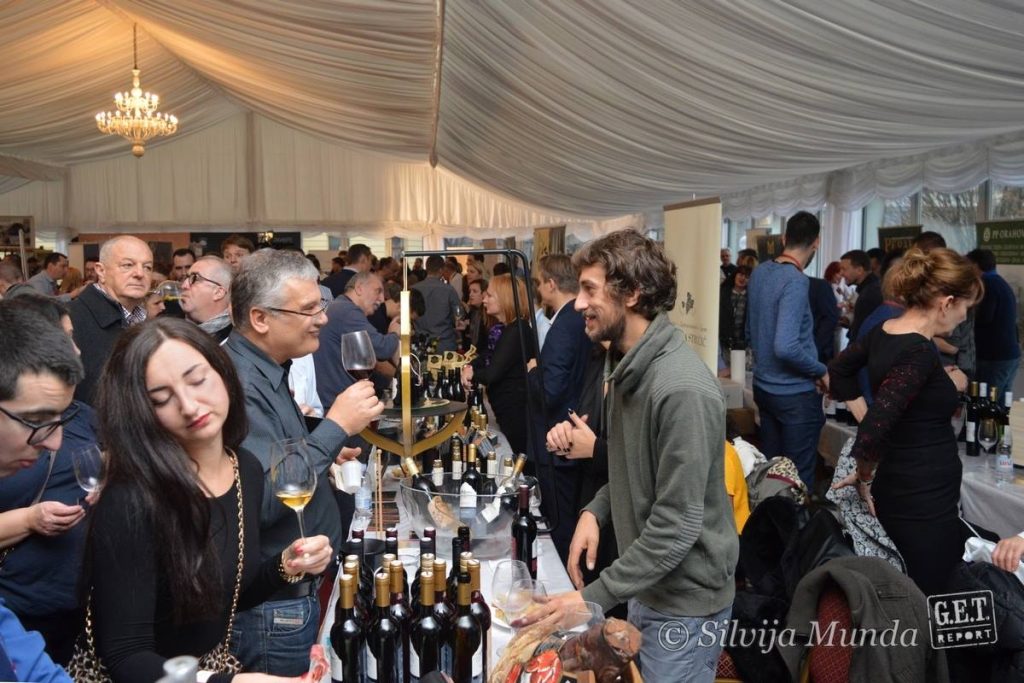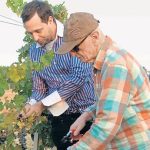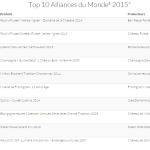Yes, the 11th Zagreb Vinocom is over and it is up to us, wine journalists, to take on a tough assignment. It was big and grandiose again, well organised. The workshops were better than ever and we must single out Romanée-Conti and Château Margaux, but also the vertical tasting of Enjingi wines which unveiled the bright future of the Enjingi brand (offered was, among others, a favourite Venje 2006, but also Venje 2010, not on the market yet, but very similar to the 1998 champion).
Wine Stars gave their ratings and diplomas for the best wines, while the White Grape Cluster, the award for the best winery in tourism, awarded by the G.E.T. association, had the best attendance ever.
We must point out the praiseworthy humanitarian cooking show with renowned chefs, organised by the Renato association, collecting funds with a goal to enable all children to have heart ultrasounds, a check up with several months of waiting, necessary for timely confirmation of a congenital heart defect.
What to write that makes sense, without repeating what I’ve said in the past years? It would be easy if the festival had failed, was badly organised… If they had done anything poorly, we would be on it, but professor Dropuljić and his team did not give us that opportunity. Vinocom once again proved why it is the best and not only within Croatia. I will not bore you with numbers of exhibitors, guests or technical information; enough to say both numbers are imposing. However, there is one thing that especially impressed me this year. There seem to be more exhibitors from abroad. Italians, Austrians, some Hungarians, Slovenes, Bosnians where the wine scene is awakening. There were some from Serbia, although I expected more. Of course, there were some French wines too – a true international manifestation.
But probably the most important fact: the visitors were also from neighbouring countries and beyond; there was Slovenian and English, some German; unlike their exhibitors, plenty of guests from Serbia. Vinocom is becoming a cosmopolitan manifestation. I have the feeling it is becoming a bridge. This wine manifestation is above any divisions or obstacles. A fact that must be put to use – the Chamber of Commerce or someone else must lean on this event and enable it to grow in terms of wine, as it is already a festival. Vinocom is becoming more important internationally; I consider it something to focus on in the next ten years – positioning it on the map of European wine festivals.
Why is Vinocom so successful? Why is there always a lack of spots? Why are the doors closed two hours ahead of the end due to crowding? There are no simple answers. Many details, though. There is also a bit of luck, but luck favours the brave. This may sound weird, but professor Dropuljić works year-round on Vinocom – visiting winemakers, other festivals, learning, observing, noting mistakes of others and not repeating them. It is a stressful work, as the entire year comes down to two days and if a large mistake happens, all the work is in vain. I have the honour and privilege to be in his company often and can say we are friends, so I will cite two sentences from him, something that makes the festival the way it is. He says: “Tomo, it is important, when talking to people, not having any hidden thoughts.” And the important one: “You’re either a wine person or you’re not.” A great philosophy in those two sentences.
If you haven’t been to this year’s Vinocom, there is always next year. Plan it now, as Vinocom is only once a year.
For the original and more from the G.E.T. Report, click here.











